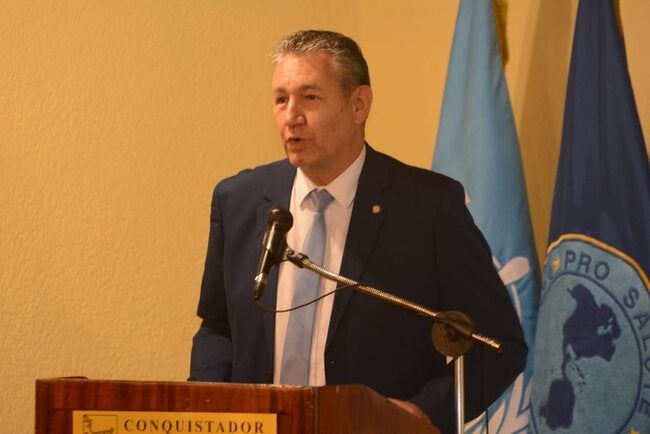Guatemala, October 7, 2022 (PAHO/WHO) – Authorities from the Ministry of Public Health and Social Assistance (MSPAS), the Guatemalan Institute of Social Security (IGSS) and the Pan American Health Organization/WHO (PAHO/WHO) opened the “Symposium The National Assembly on Family and Community Medicine in Guatemala: Opportunities and Challenges” where they highlighted the importance of implementing family and community medicine to improve the health and quality of life of the population.
This symposium, which included high-level regional participants, allowed for the exchange of experiences and information on Spain, Canada, Brazil, Argentina, the United States, among others. During this year, three seminars were held in the country, prior to the 8th Ibero-American Summit on Family and Community Medicine, which will take place on November 10-11 in Guatemala City.
“Family and Community Medicine contributes to avoiding saturation of hospitals and is a change in health systems that are shifting from reactive to preventive,” said Dr. Gerardo Hernandez, Deputy Minister for Hospitals at MSPAS during his speech.
Meanwhile, Dr. Gerardo Alfaro, PAHO/WHO Representative in Guatemala, said, “All interventions during the symposium aim to share lessons learned on the value of family and community medicine to transform systems and services, with a view to advancing models of care based on the strategy of care. Initial with a more comprehensive component that includes family and community for early identification of risks.
For his part, José Adolfo Flamenco Gao, Chairman of the Board of Directors of IGSS, emphasized that “Family and Community Medicine is a commitment at all levels of healthcare and should be a cross-institutional effort with MSPAS.”
As part of the follow-up activities for the topic after the seminars and summit, efforts will be made to train specialists in family medicine in Guatemala, which is why Dr. Sandra Frever from Argentina, Consultant Family Medicine and International Society, PAHO/WHO address the opportunities and challenges of implementing studies in family medicine in institutions undergraduate.
In addition, it is hoped that with these lessons shared during the symposium, it can be preferred to implement the healthcare model, management, and family and community health strategy in a sustainable manner.
Some of the presentations also included the participation of Dr. Alexandre Florencio, PAHO/WHO International Advisor for Health Systems and Services, who provided information on the development of the Family Health Strategy in Brazil since 1992. On the other hand, Dr. Among other notable panelists, Jacques Girard, an academic from Laval University in Canada, commented on the theoretical and methodological elements of family medicine and its essential role in the transformation of health care.

“Social media evangelist. Student. Reader. Troublemaker. Typical introvert.”







More Stories
“Those who go to museums but do not see an oak tree in the countryside should blush.”
Michoacana Science and Engineering Fair 2024, When the Call Ends – El Sol de Zamora
Dr. Miguel Kiwi, winner of the National Science Award, gives his opinion on nanoscience in Chile